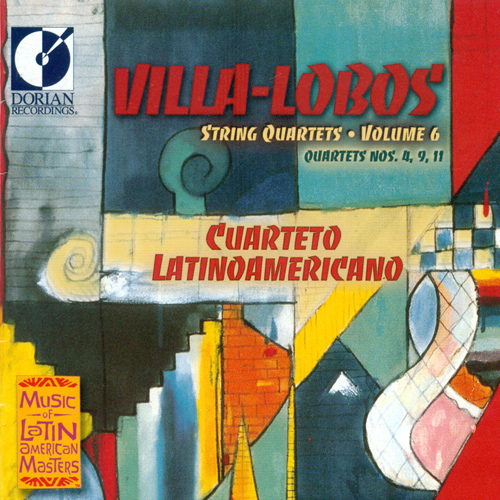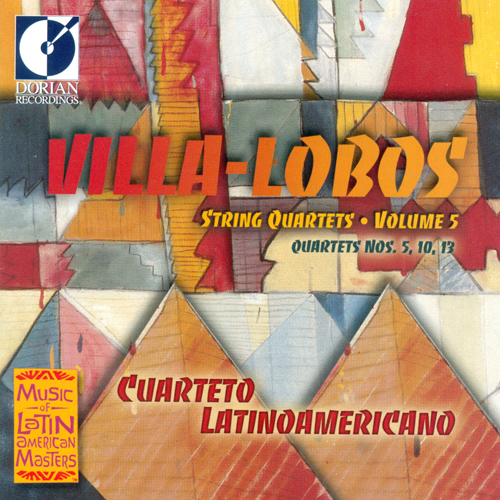Villa-Lobos: SQ 4, 5, and 6
Continuing on from the first three string quartets from Villa-Lobos, String Quartet no. 4 begins much in the same way as no. 2. That is, a rather angular opening motive, which is passed among the instruments in turn.
I am realizing more and more how much Villa-Lobos loved polyphonic textures, whether mere imitation or fugal/contrapuntal devices. Either way, these three string quartets on hand love to pass around motivic ideas, and the composer's love of Bach is obviously sitting in the background.
The gruffness of the opening movement, as well as the third mvt., are a little off-putting to this listener, even if the Scherzo affords some impishness amongst the seriousness.
SQ4's second movement, however, is quite lovely, where the vacillating accompaniment figures, another trademark in these early quartets, are captivating. Like SQ2, I am hot and cold on moments throughout this quartet, but I think in time, I will come to like no. 4 more.
On the other hand, String Quartet no. 5 is quite easy to love, and the subtitle 'Quarteto Popular' ensures an affable listening experience. Indeed, Villa-Lobos uses actual folk tunes to guide his work here.
Overall, SQ5 is an upbeat composition, also the composer's shortest quartet. I could see it and SQ1 serving as an entryway into the composer's string quartets for those unfamiliar with the Brazilian composer's work. Only the third movement contains deep, brooding melancholy, where it positively pulsates and throbs with expression.
As I was listening, I thought this music sounds akin to a solid dose of Americana, yet of the South American variety. Tunes are easily identifiable and digestible, the rhythms are syncopated and propulsive, yet Villa-Lobos has his own musical language which marks his voice as a singular one. If someone enjoyed Dvořák's 'American' Quartet, I think this would sit well alongside it.
The pattern up to now has me enjoying Villa-Lobos' odd-numbered quartets, but having some trouble with the even-numbered ones. String Quartet no. 6 breaks this sequence, and indeed, it is another folk-song based work.
I sense, though, more complexity on hand then either the Fifth or First quartets, where the Sixth's harmonies stretch into chromaticisms while remaining true to its folk idioms. SQ6 is also longer, and I feel it fails to stretch my attention successfully by the time the final movement rolls around, at least to a small degree.
As in the earlier quartets, the Latin-American Quartet plays well, but I could imagine better. The ensemble seems to find more security in the populous-leaning quartets, but that could also be my preference for that particular music.
With the later volumes on Dorian (and reissued on Brilliant Classics), the venue moves from the US to Mexico, but I haven't done enough comparisons to find a remarkable aural difference.
Works
String Quartet 4 (23.22)
String Quartet 5 (16.06)
String Quartet 6 (24.37)
Performers
Cuarteto Latinoamericano
Saúl Bitrán, violin
Arón Bitrán, violin
Javier Montiel, viola
Alvaro Bitrán, cello
Label: Dorian
Year: 1995-98; 2009
String Quartet 4 (23.22)
String Quartet 5 (16.06)
String Quartet 6 (24.37)
Performers
Cuarteto Latinoamericano
Saúl Bitrán, violin
Arón Bitrán, violin
Javier Montiel, viola
Alvaro Bitrán, cello
Label: Dorian
Year: 1995-98; 2009
Find more Villa-Lobos recordings HERE!






Comments
Post a Comment